She yodelled her way into jazz, now she wants to reclaim Switzerland
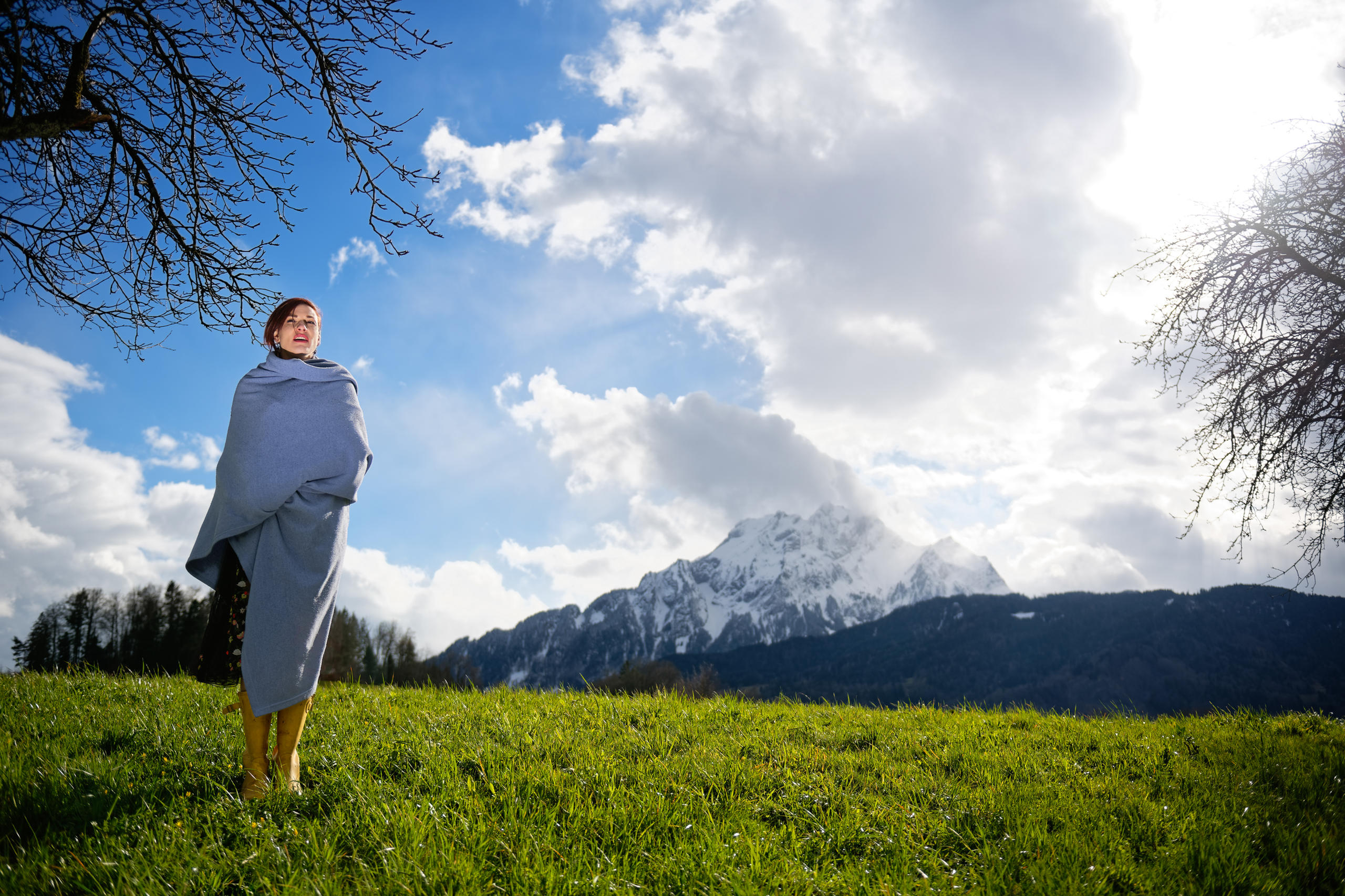
Gabriela Martina learned to yodel as a child, in the heart of the Swiss countryside. After honing her singing skills abroad – earning praise in America and now in Holland – her native country still eludes her.
Gabriela Martina’s recent music clip, This Country – That CountryExternal link, is reminiscent of the opening scenes of an updated version of Heidi, the mythological Swiss cultural export set in idyllic Alpine pastures. In the clip, however, the mountain landscape lying behind a green pasture is not an artificial construct. Gabriela Martina grew up on a farm close to the city of Lucerne in central Switzerland – deep in the heart of the Swiss countryside.
She carried her grassroots to Boston where she enrolled at the prestigious Berklee College of Music and began to fuse her home traditions – more specifically, her yodelling skills – to experimental music and jazz.
After 13 years in the US, and several prizes and encouraging reviews in the specialised press, she decided to move back to Europe with her husband – first to Switzerland, during the Covid-19 pandemic, and now to Amsterdam. While the pandemic delayed the release of her second album, Homage to Grämlis, it also pushed her to further hone her yodelling skills at the University of Lucerne under the guidance of singer Nadja Räss, and to compose many of the songs for her latest album, States, to be released in spring 2024.
The singer-composer is restless. Accompanied by a band of former colleagues from Berklee, Martina is about to start recording new songs for a fourth full-length album. Many of the tracks were initially composed for a shelved project intended to raise awareness about the issue of child marriage.
“But I composed ten new pieces in the meantime on the topics of womanhood, sexuality, and empowerment’”, Martina told SWI swissinfo.ch in an interview by telephone from Amsterdam.
SWI swissinfo.ch: You are now living in Amsterdam after over a decade in the United States. Why did you choose the Netherlands?
Gabriela Martina: My husband is from Finland, I’m from Switzerland. We left during quite an unstable period in the US – on one hand there was the Covid-19 pandemic, on the other hand there were many political tensions. We also faced issues like a deficient health care system.
I had also lost my entire business, the booking agency Red Velvet Sounds, and my entire tour to promote Homage to Grämlis was a big financial loss.
So we decided to go back to Europe. We could either go to Switzerland or to Finland, but in either one of those countries, one of us would have to start from zero, so we decided to go to a neutral place. Amsterdam is a very multicultural city, it has a lot of venues.
SWI: What was your musical education and how did you get into yodelling?
G.M.: I inherited yodelling from my parents and my family environment. We used to play music at home on Saturday and Sunday afternoons: my mother at the piano, someone playing the accordion, my siblings playing other instruments, everyone dancing in circles… I used to play violin for eight years, I attended many choirs, and then started taking voice lessons at the age of 15.
SWI: Were your family members professional musicians and singers?
G.M.: My mother was in a church choir; she was a solo singer and took music lessons. As for my father, he has been part of a mainly male yodelling club for 50 years. The members are between 20 and 30 men and two or three women. They perform at “Jodelfests”, at church, or at events in the city like weddings or funerals. We also performed as a family. I have two sisters and a younger brother, and we used to yodel all together.
SWI: How did you make the leap to a career as a musical performer?
G.M.: It was something I discovered at school, in Lucerne. I once performed “The Girl of Ipanema” when I was 17, and the way the audience reacted really moved me. People seemed to resonate with my voice. That was the moment when I realised that I probably should take singing a little more seriously.
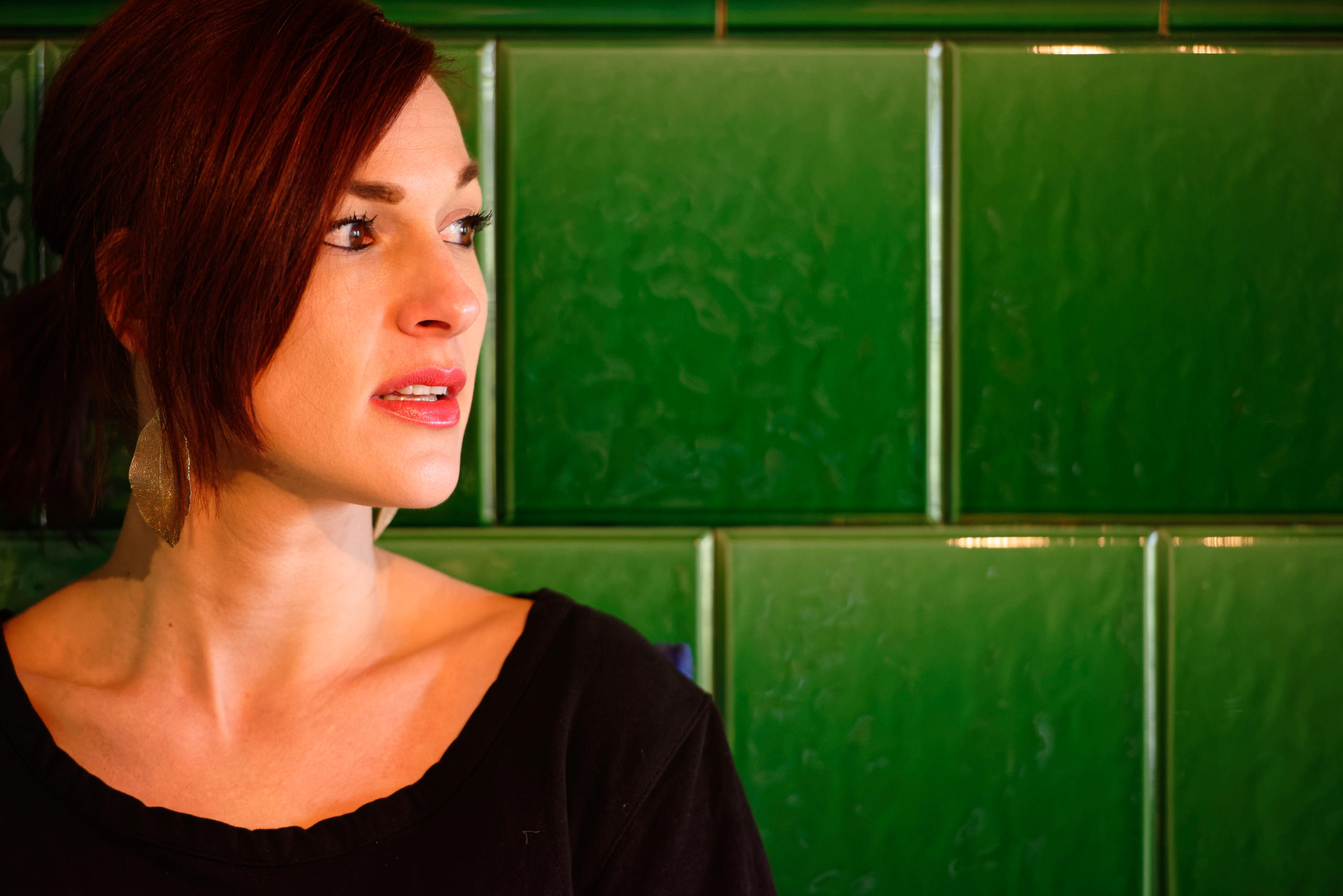
SWI: We reported a couple of years ago that the University of Lucerne had opened a graduation course on yodeling. Are you familiar with it?
G.M.: Of course! I studied Jazz Voice there between 2005 and 2008 and returned there when I came to Switzerland in 2020, shortly after Covid struck, because my father was very ill. I had to find something to do. Because of the pandemic, I lost my business, my tours were cancelled, as was basically every gig from then onwards. I started to look at options of how to keep myself sane and applied for the certificate programExternal link. I could finally study yodelling professionally.
SWI: Yodelling is traditionally passed down from generation to generation, informally. Is this tradition changing?
G.M.: I think so. Students are coming to Switzerland from all over the world to study yodelling. At the last Yodelfest I attended, there was a yodeller from South Korea. People listen to a person like that with very different ears and it’s always a matter of acceptance, respect, and admiration for all the effort. I think it’s awesome.
SWI: You mean the cultural mix?
G.M.: Yes. It would be the same as me going to Brazil and learning the language and digging into Brazilian music. I have no clue about that, and I know it would take me years, if not a lifetime. Because it’s not just the music. It’s the food, the language, how the people dance, how the people sleep, how the people talk.
Yodelling is not a Swiss thing. It’s part of Swiss culture, sure, but you also find it in Austria and Germany. Then you go to Lapland, the Sami have their joik. And in Sweden, they have kulning. There is also a form of yodelling by the West African pygmies. And then you go to India… I just met an Indian guy here in Amsterdam and he said, “well, we do that too. I didn’t know that Swiss people yodel” (laughs).
SWI: Can we say that there’s a sort of modern yodeling emerging today?
G.M.: Sure. But if there’s a modern way of yodelling, there are tons of artists doing it right now. Nadja Räss definitely has a more modern approach to yodelling; I can also mention Simone Felber and Erika Stucky. These are just a few from Switzerland, although I’m not so familiar with the Swiss scene, unfortunately.
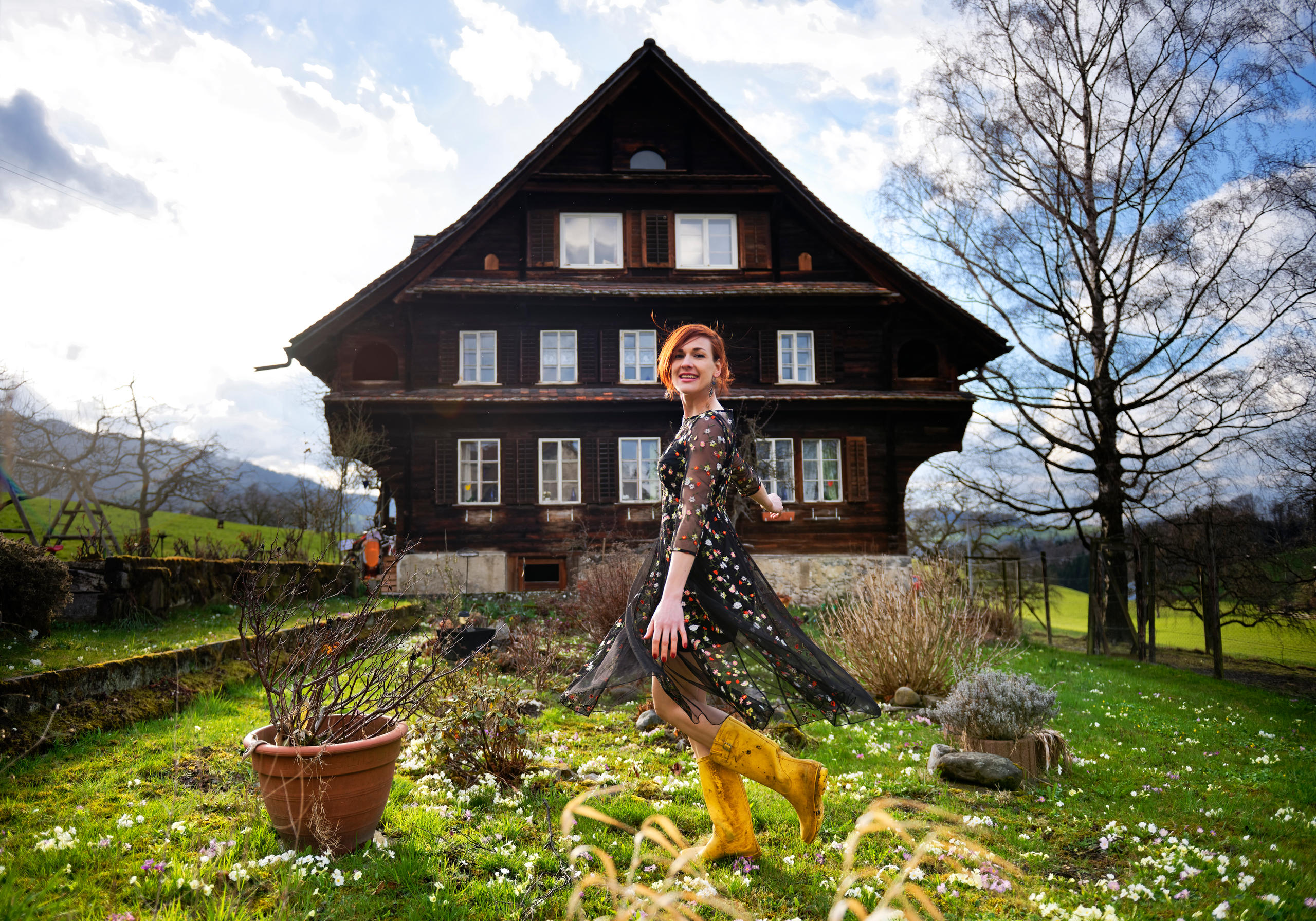
SWI: What music do you engage with when you’re composing?
G.M.: That always depends on the concept. In Homage to Grämlis, for example, it was very clear. I wanted to pay homage to my childhood, to my parents, to my siblings, to that piece of land where I grew up. And I knew that I would have to somehow implement yodelling in my compositions.
In fact, I rediscovered yodelling much later, probably in 2016. I was in Boston and yodelled at an event, and I just broke out in tears. That’s when I realised that there was something that moved me very deeply and that I should look more into the art. I couldn’t just let that go. That brought me to compose pieces about Grämlis, the family farm. My parents had decided to leave their farm there in 2018, so it was timed to be a big thanks to their contribution to the entire local community.
SWI: You were in the US for 13 years and now live in Holland. To what extent do you maintain a dialogue with Switzerland? Has your relationship with your home country changed with the distance?
G.M.: Well, one thing I should be better at is voting because I am very interested in politics, but for some reason I just have a really hard time to catch the deadlines. I receive the Swiss Review [the magazine for the Swiss Abroad] and I’m aware that online voting is still a big issue. But I’m always in touch with Switzerland no matter where I am living.
In Boston I knew all the Swiss organisations (Swissnex, Friends of Switzerland, Swisslink, etc.) and even sang the Swiss national anthem at a huge event in New York when stage director Daniele Finzi Pasca visited us right before Covid-19 broke out.
In the Netherlands I’m in touch with the Swiss Embassy and when they ask me for a gig or yodelling or whatever, I’m glad to be part of it. But ironically, I have a hard time to book gigs in Switzerland.
SWI: How come?
G.M.: Maybe because I don’t really have a name in Switzerland yet. It’s quite frustrating.
SWI: A common complaint from Swiss artists is that you have to be a big success abroad to be then ‘discovered’ in Switzerland.
G.M.: Yes, I just wonder when the turning point will be for me. The musicians I play with tour with huge names, they have incredible resumés and backgrounds, and I would love to present them in Switzerland. And I know the Swiss people would enjoy them, but if I don’t get the chance to perform my music in Switzerland, people will never get familiar with my name and my music, so the cycle keeps repeating. You need to get that first chance!
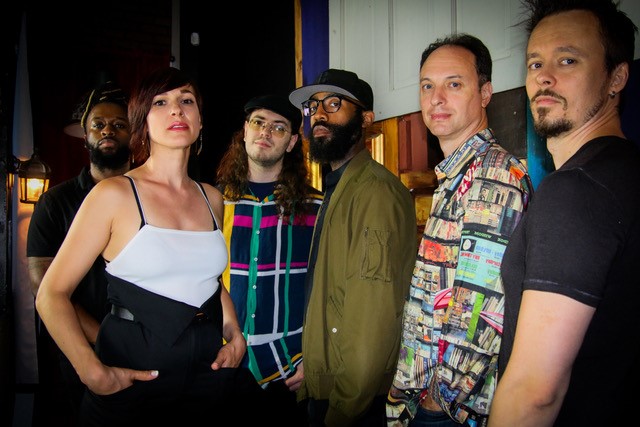
Edited by Virginie Mangin/dos

In compliance with the JTI standards
More: SWI swissinfo.ch certified by the Journalism Trust Initiative
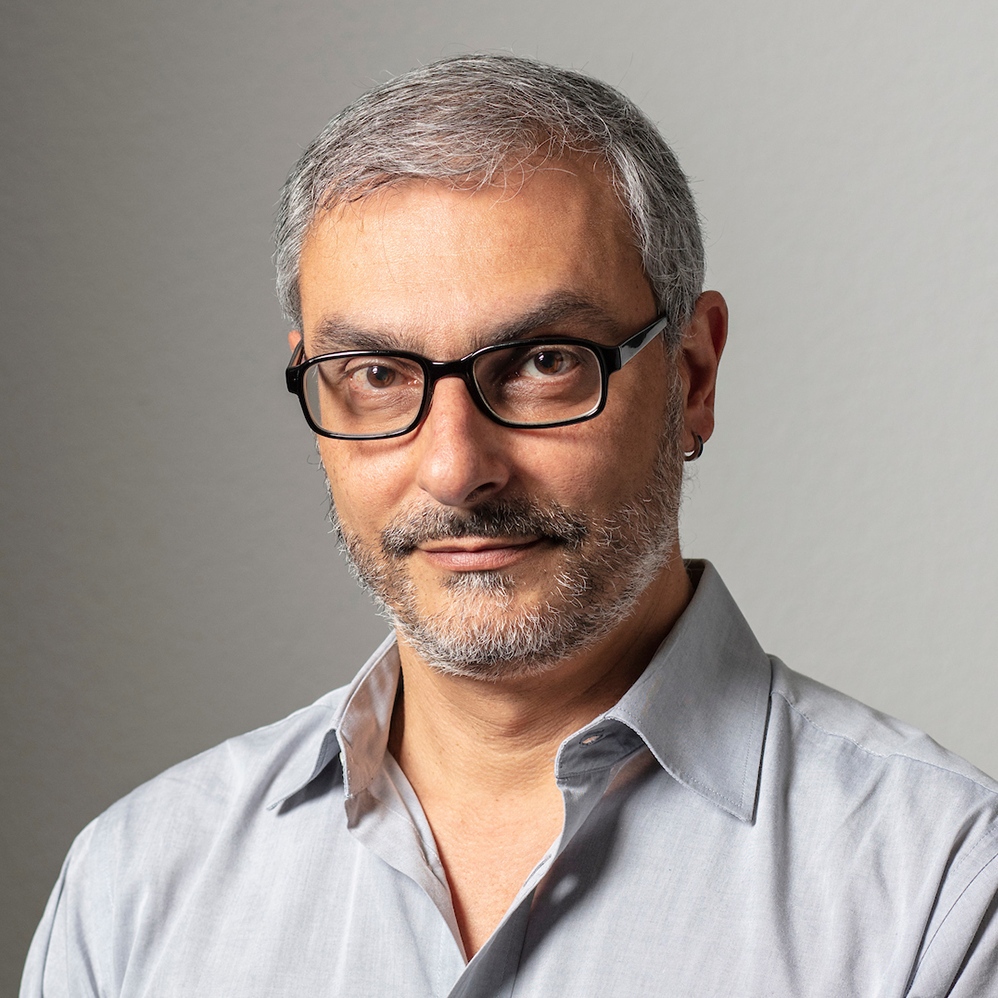
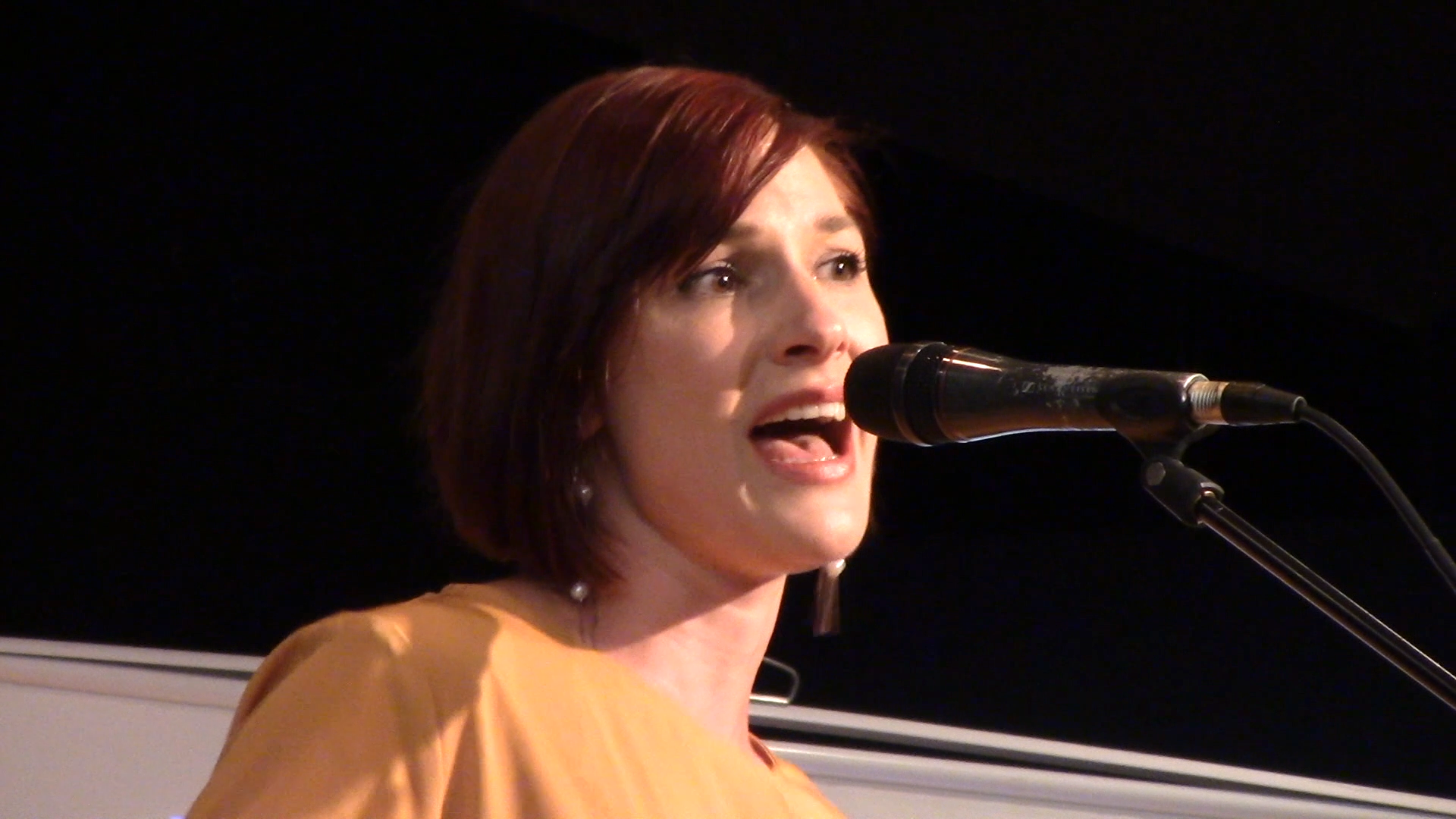
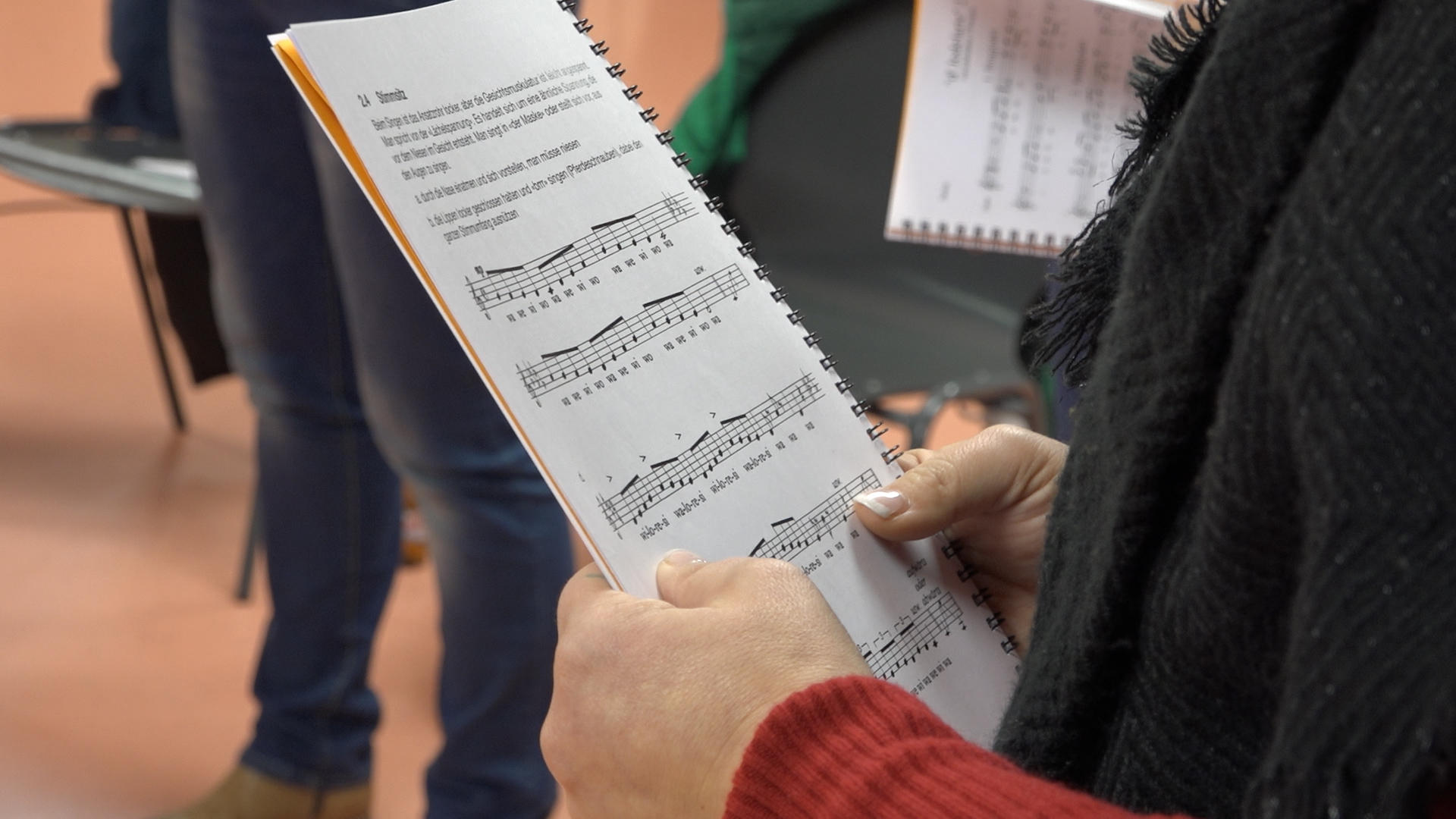
You can find an overview of ongoing debates with our journalists here . Please join us!
If you want to start a conversation about a topic raised in this article or want to report factual errors, email us at english@swissinfo.ch.